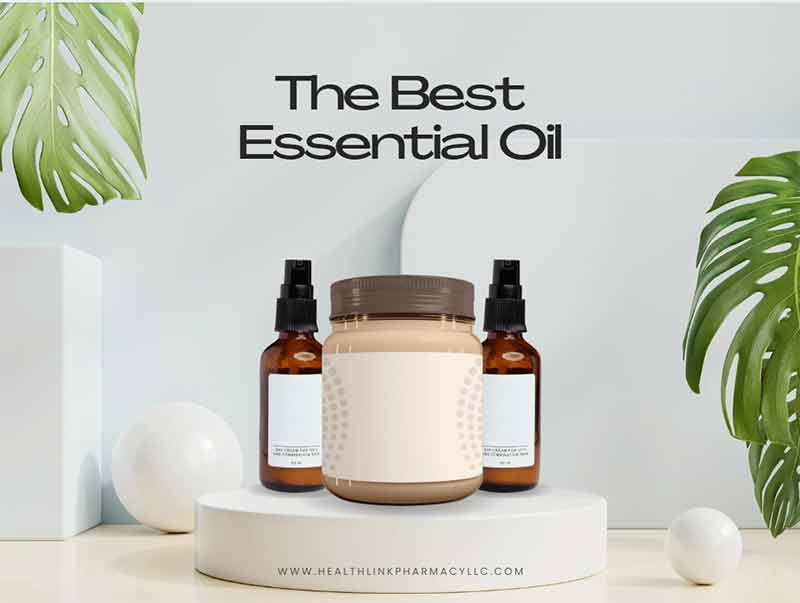Seasonal changes bring many health challenges, from mild sniffles to full-blown colds. Many people use essential oils instead of relying solely on conventional medicines for cold relief and immune support. These natural remedies, extracted from plants, offer a holistic way to tackle seasonal discomforts.
What are Essential Oils?
Essential oils are concentrated plant extracts that capture the essence of a plant’s fragrance and healing properties. Derived through steam distillation or cold pressing, these oils are packed with potent compounds that promote physical and emotional well-being.
How Seasonal Changes Impact Health
The shift in weather often affects the body’s ability to fight off infections. Fluctuating temperatures, humidity levels, and allergens can weaken the immune system. Common ailments like colds, flu, and allergies spike during these times, making it crucial to bolster your body’s defences.
Essential oils are a natural remedy that reduces symptoms while enhancing overall wellness. Unlike over-the-counter medications, they work without synthetic chemicals, offering a gentler yet effective alternative.
Why Essential Oils are Effective for Cold Relief
Essential oils possess unique properties that target the root causes of seasonal ailments. Their antimicrobial, anti-inflammatory, and soothing effects make them valuable to any wellness routine. For example:
- Eucalyptus oil opens airways and clears mucus.
- Peppermint oil cools nasal passages, relieving congestion.
- Lavender oil promotes relaxation, which is essential for recovery.
These oils also excel in aromatherapy, where inhalation can stimulate the immune system and reduce stress—a key factor in staying healthy during seasonal transitions.
Top Essential Oils for Seasonal Changes
Eucalyptus Oil for Respiratory Support
Known for its strong, minty aroma, eucalyptus oil is a go-to remedy for colds. It helps break down mucus and clears sinuses, making breathing easier.
Peppermint Oil for Congestion
The menthol in peppermint oil provides instant relief for blocked noses and headaches. Its cooling effect soothes inflammation, bringing quick Comfort.
Lavender Oil for Stress and Sleep
Seasonal changes can disrupt sleep patterns. Lavender oil calms the mind and promotes deep, restorative sleep, which is essential for a strong immune system.
Lemon Oil for Immune Boosting
Rich in vitamin C, lemon oil strengthens immunity and fights off infections. Its fresh scent uplifts the mood, combating seasonal blues.
Tea Tree Oil for Antimicrobial Properties
Tea tree oil is a powerhouse against bacteria and viruses. Its application prevents infections while speeding up healing.
Frankincense Oil for Overall Wellness
Frankincense supports the immune system, reduces inflammation, and enhances respiratory function, making it essential during seasonal shifts.
How to Use Essential Oils Safely
To maximize the benefits of essential oils, proper usage is vital:
- Topical Application: Always dilute oils with a carrier oil like coconut or jojoba to prevent skin irritation.
- Diffusion: Add a few drops to a diffuser to fill your space with therapeutic aromas.
- Inhalation: A quick sniff or steam inhalation can work wonders for congestion.
Tip: Always patch-test oils to ensure they suit your skin type.
DIY Recipes with Essential Oils for Cold Relief
Homemade Chest Rub with Eucalyptus
For a natural chest rub, combine five drops of eucalyptus, three peppermint, and two tablespoons of coconut oil.
Soothing Steam Blend for Congestion
Add three drops each of eucalyptus and tea tree oil to a bowl of hot water. Cover your head with a towel and inhale deeply.
Immune-Boosting Diffuser Blend
Mix three drops of lemon oil, two drops of frankincense, and one drop of tea tree oil in your diffuser.
Relaxing Bath Soak with Lavender
Combine five drops of lavender oil with Epsom salt for a calming, immune-boosting bath.
Essential Oils for Kids and Elderly
Children and older people have sensitive systems that require extra care:
- For kids, dilute essential oils more heavily (1 drop per tablespoon of carrier oil).
- For elderly users, start with mild oils like lavender and adjust dilution as needed.
Storing and Maintaining Essential Oils
To ensure the longevity of your oils:
- Store them in a cool, dark place, away from direct sunlight.
- Check for quality by purchasing from reputable brands.
- Keep an eye on expiration dates for optimal potency.
FAQs
Best essential oils for seasonal changes?
Eucalyptus, lavender, and lemon oils are top picks for seasonal transitions.
How do you dilute essential oils for topical use?
Use 1-2 drops of essential oil per teaspoon of carrier oil for safe application.
Can essential oils prevent colds?
While they can’t guarantee prevention, they strengthen immunity and reduce symptoms.
Are essential oils safe for children?
Yes, with proper dilution and avoiding potent oils like peppermint.
How often can I use essential oils for cold relief?
Depending on the method, 1-3 times a day is typically safe.
What’s the best way to diffuse oils?
Use a high-quality diffuser and add 5-10 drops of your chosen oil.
Conclusion
Essential oils for seasonal changes and cold relief provide a natural, effective way to navigate health challenges. Incorporating them into your daily routine can strengthen your immunity, reduce symptoms, and enjoy better overall wellness. Whether through diffusion, topical use, or DIY blends, essential oils offer a holistic approach to seasonal care.

